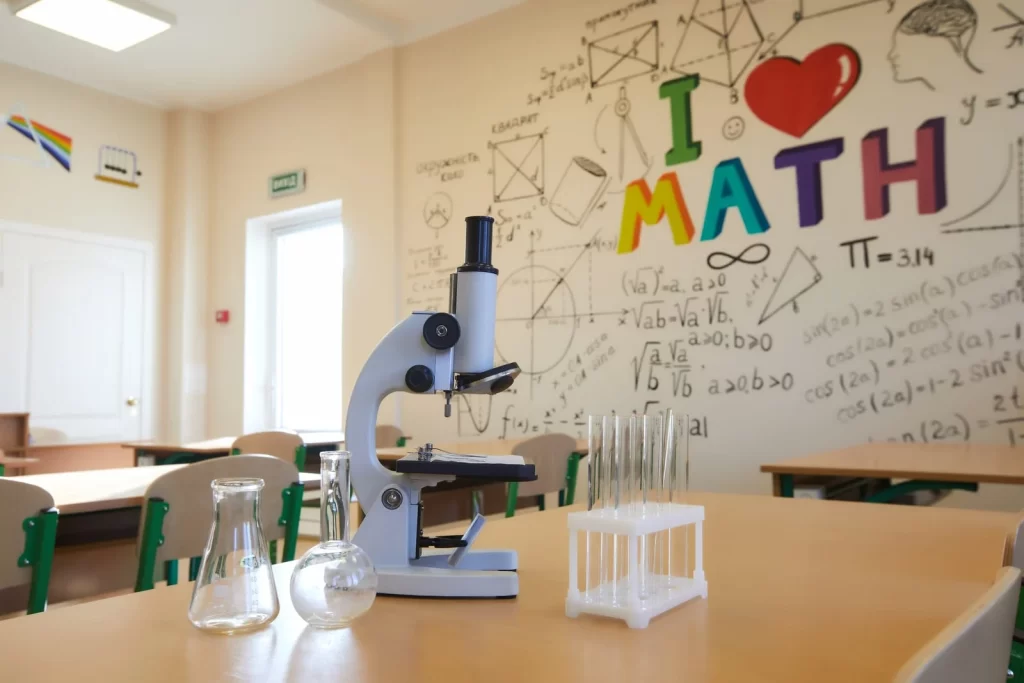The United Arab Emirates has positioned itself as a global leader in educational transformation, demonstrating a remarkable commitment to providing quality education for students from all backgrounds and nationalities. As one of the world’s most diverse educational environments, the UAE faces unique challenges in delivering consistent, high-standard education across its varied student population.
The country’s educational goals align closely with international best practices while respecting local culture and traditions. Through strategic planning, significant investment, and innovative approaches to teaching and learning, UAE schools are working systematically to ensure that every student receives an education that prepares them for success in a global economy.
What Does Quality Education Mean in the Modern Context?
Understanding what quality education means requires examining multiple dimensions of the learning experience. It encompasses not just academic achievement but also the development of critical thinking skills, creativity, emotional intelligence, and global citizenship awareness. In the UAE context, this definition also includes cultural sensitivity and multilingual competency.
Quality education provides students with the knowledge, skills, and values that enable them to succeed in higher education, careers, and life generally. This includes both hard skills, such as literacy and numeracy, and soft skills, such as communication, collaboration, and problem-solving. The educational experience should be engaging, relevant, and accessible to all students, regardless of their background or abilities.
Characteristics of High-Quality Educational Systems
High-quality educational systems share several common characteristics that distinguish them from average programs. These include well-trained and motivated teachers, comprehensive curricula that strike a balance between academic rigor and practical application, adequate resources and infrastructure, and strong leadership at both school and system levels.
Effective education also incorporates ongoing assessment and improvement processes, meaningful parent and community engagement, and support systems that help all students succeed. The best educational programs adapt to changing needs while maintaining high standards and clear expectations for student performance.
Impact on Student Success
High Standards and Clear Expectations
The importance of quality education becomes evident when examining its direct correlation with student outcomes and future opportunities. Students who receive a high-quality education develop stronger academic foundations, better critical thinking skills, and greater confidence in their ability to tackle complex challenges. These benefits extend throughout their lives, influencing career success and personal fulfillment.
Research consistently demonstrates that students from high-quality educational programs exhibit improved performance on international assessments, higher rates of enrollment in higher education, and better preparation for 21st-century careers. They also develop stronger social and emotional skills that contribute to personal well-being and positive community engagement.
Aligning with UAE Vision 2021 and Vision 2030
The UAE’s national vision documents emphasize education as a cornerstone of the country’s development strategy. It supports the goal of building a knowledge-based economy by preparing citizens with the skills needed for innovation and entrepreneurship. This alignment ensures that educational investments contribute directly to national development objectives.
Vision 2030 specifically calls for educational excellence that prepares students to compete globally while maintaining a strong national identity and values. This balance requires sophisticated approaches to curriculum design and instruction that honor cultural heritage while preparing students for international opportunities.
Equity and Inclusivity in Education
Quality education must be accessible to all students, regardless of their socioeconomic background, nationality, or learning differences. The UAE’s commitment to educational equity reflects its values of tolerance and inclusion, ensuring that every student has the opportunity to reach their full potential.
This commitment includes providing support for students with special needs, English language learners, and those from disadvantaged backgrounds. Schools implement various strategies to remove barriers to learning and create environments where all students can succeed academically and socially.

How UAE Schools Are Ensuring Quality Education for Every Student
Curriculum Development and Innovation
UAE schools continuously update and improve their curricula to reflect current knowledge and future needs. This process involves regular review of content standards, learning objectives, and instructional methods to ensure they remain relevant and effective. Curriculum development also incorporates feedback from teachers, students, and employers to maintain alignment with real-world requirements.
Innovation in curriculum design encompasses interdisciplinary approaches that enable students to make connections between different subjects and recognize the relevance of their learning. Schools also integrate local and global perspectives, allowing students to understand their place within both national and international contexts.
Focus on Critical Thinking and Problem-Solving
Modern quality education emphasizes developing students’ ability to think critically and solve complex problems rather than simply memorizing facts. UAE schools implement teaching strategies that encourage questioning, analysis, and creative problem-solving across all subject areas.
Key Strategies for Developing Critical Thinking:
- Project-based learning that requires students to investigate real-world problems
- Socratic questioning techniques that encourage deep thinking
- Collaborative learning opportunities that expose students to different perspectives
- Case study analysis that develops analytical reasoning skills
- Research projects that require evaluation of sources and evidence
Technology Integration in Education
Technology plays an increasingly important role in delivering quality education in UAE schools. Digital tools enhance learning opportunities, provide access to global resources, and prepare students for technology-rich work environments. However, effective technology integration focuses on enhancing learning rather than replacing good teaching.
Schools utilize technology to personalize learning experiences, provide immediate feedback, and create engaging multimedia content that caters to diverse learning styles. Online platforms also facilitate collaboration among students from different schools and countries, thereby broadening perspectives and fostering cultural understanding.
Teacher Training and Professional Development
The quality of education depends heavily on teacher effectiveness, making professional development a priority for UAE schools. Ongoing training ensures that educators stay current with best practices, new technologies, and changing student needs. This investment in human capital has a direct impact on classroom quality and student outcomes.
Components of Effective Teacher Development Programs:
- Regular workshops on new teaching methods and technologies
- Collaborative planning time with colleagues
- Mentoring programs for new teachers
- Advanced degree and certification opportunities
- International exchange and learning programs
- Leadership development for experienced educators
Student-Centered Learning Approaches
UAE schools are increasingly adopting student-centered approaches that recognize individual learning differences and promote active engagement. These methods shift the focus from teacher-directed instruction to learning experiences that encourage student participation, choice, and responsibility for their own learning.
Student-centered approaches include differentiated instruction that meets diverse learning needs, inquiry-based learning that encourages exploration and discovery, and authentic assessment that measures real understanding rather than rote memorization. These strategies help ensure that quality education reaches every student effectively.

Assessing and Monitoring the Quality of Education in UAE Schools
Continuous Evaluation of School Performance
UAE educational authorities implement comprehensive evaluation systems to monitor and improve the quality of education across all schools. These systems include regular inspections, standardized assessments, and performance indicators that track progress toward educational goals. Data from these evaluations inform policy decisions and resource allocation.
School evaluation encompasses multiple aspects of educational quality, including teaching effectiveness, student achievement, leadership quality, and resource adequacy. This comprehensive approach ensures that improvements address all factors that contribute to educational excellence.
Feedback Mechanisms from Students, Teachers, and Parents
Effective quality assurance involves gathering input from all stakeholders in the educational process. Students provide valuable feedback about their learning experiences, teachers offer insights about instructional effectiveness, and parents contribute perspectives on school communication and support services.
Methods for Gathering Stakeholder Feedback:
- Regular surveys of students, teachers, and parents
- Focus groups and listening sessions
- Parent-teacher conferences and communication platforms
- Student advisory councils and representation systems
- Teacher professional learning communities
- Community forums and public meetings
Government and Regulatory Oversight
The UAE government maintains active oversight of educational quality through various agencies and initiatives. This includes setting standards for curriculum and instruction, monitoring school performance, and providing support for improvement efforts. Regulatory oversight ensures consistency and accountability across different types of schools.
Government support also includes funding for educational innovations, teacher development programs, and infrastructure improvements that enhance learning environments. This systematic approach to quality assurance helps maintain high standards while encouraging continuous improvement.
Building Educational Excellence for the Future
The UAE’s comprehensive approach to ensuring quality education reflects a deep understanding of education’s role in national development and individual success. Through strategic planning, significant investment, and ongoing commitment to improvement, UAE schools are creating learning environments that prepare students for future challenges and opportunities.
The focus on quality education serves multiple purposes: developing human capital for economic growth, promoting social cohesion and cultural understanding, and ensuring that every student has the opportunity to reach their full potential. This multi-faceted approach recognizes that educational excellence requires attention to both academic achievement and personal development.


